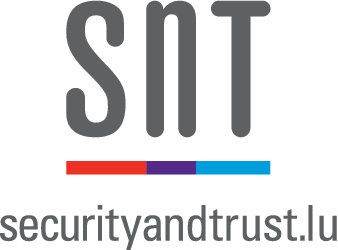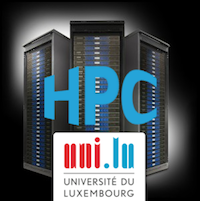Keynote Speakers
We have the pleasure to welcome for this edition of CloudCom the following keynote speakers:
| Date | Time | Name | Title |
|---|---|---|---|
| Tuesday, Dec. 13th | 09:30 - 10:30 | Prof. Mischa Dohler | The Tactile Internet – IoT, 5G and Cloud on Steroids |
| Tuesday, Dec. 13th | 13:30 - 14:30 | Prof. D.K. Panda | HPC Meets Cloud: Opportunities and Challenges … |
| Wednesday, Dec. 14th | 09:30 - 10:30 | Prof. Lizhe Wang | Big Trajectory Data Processing on GPUs: … |
| Thursday, Dec.15th | 09:30 - 10:30 | Dr. Reinhard Schneider | Cloud computing in the life sciences |
In addition, during the first day of the conference dedicated to the conference workshops, symposium and tutorial, we have the pleasure to welcome Lucas Nussbaum, who will give a plenary keynote entitled “Grid’5000: Running a Large Instrument for Parallel and Distributed Computing Experiments”.
Tuesday, Dec. 13th, 2016 | 09:30 - 10:30
Prof. Mischa Dohler, King’s College London, UK
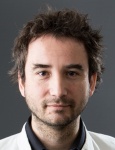
“The Tactile Internet – IoT, 5G and Cloud on Steroids”
Abstract: Currently we can see and hear through the Internet, but we cannot touch. We have a vision to create the Tactical Internet, where we would be able to touch through the median of the internet. This would transform some very basic but vital tasks, like online shopping where the user might want to touch and feel the texture of a dress or jacket before buying it, but, most importantly, this has the potential to transform the way that healthcare, engineering and wealth is delivered globally. We will be able to convey physical, tactile experiences remotely and thus invoke a fundamental shift from content-delivery to skillset-delivery networks. This talk will summarize the potentials, building blocks and challenges which lay ahead for designing the Tactile Internet.
Biography:
Mischa Dohler is full Professor in Wireless Communications at King’s College London, driving cross-disciplinary research and innovation in technology, sciences and arts. He is the Director of the Centre for Telecommunications Research, co-founder of the pioneering smart city company Worldsensing, Fellow of the IEEE and the Royal Society of Arts (RSA), and a Distinguished Member of Harvard Square Leaders Excellence.
He is a frequent keynote, panel and tutorial speaker, and has received numerous awards. He has pioneered several research fields, contributed to numerous wireless broadband, IoT/M2M and cyber security standards, holds a dozen patents, organized and chaired numerous conferences, was the Editor-in-Chief of two journals, has more than 200 publications, and authored several books. He has a citation h-index of 44.
He acts as policy, technology and entrepreneurship adviser, examples being Richard Branson’s Carbon War Room, David Willetts’ 8 Great Technology Fund, Regulator Ofcom, UK Ministries, EPSRC ICT Strategy Advisory Team, European Commission, Tech London Advocate, ISO Smart City working group, and various start-ups. He is also an entrepreneur, composer & pianist, and fluent in 6 languages. He has talked at TEDx. He had coverage by national and international TV & radio, and his contributions have featured on the BBC and the Wall Street Journal.
Tuesday, Dec. 13th, 2016 | 13:30 - 14:30
Prof. Dr. Dhabaleswar K. Panda, Ohio State University, USA
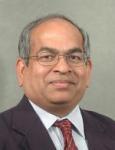
“HPC Meets Cloud: Opportunities and Challenges in Designing High-Performance MPI and Big Data Libraries on Virtualized InfiniBand Clusters”
Abstract: Significant growth has been witnessed during the last few years in HPC clusters with multi-/many-core processors, accelerators, and high-performance interconnects (such as InfiniBand, Omni-Path, iWARP, and RoCE). To alleviate the cost burden, sharing HPC cluster resources to end users through virtualization for both scientific computing and Big Data is becoming more and more attractive. The recently introduced Single Root I/O Virtualization (SR-IOV) technique for InfiniBand and High Speed Ethernet provides native I/O virtualization capabilities and is changing the landscape of HPC virtualization. However, SR-IOV lacks locality-aware communication support, which leads to performance overheads for inter-VM communication even within the same host. In this talk, we will first present our recent studies done on MVAPICH2-Virt MPI library over virtualized SR-IOV-enabled InfiniBand clusters, which can fully take advantage of SR-IOV and IVShmem to deliver near-native performance for HPC applications. In the second part, we will present a framework for extending SLURM with virtualization-oriented capabilities, such as dynamic virtual machine creation with SR-IOV and IVShmem resources, to effectively run MPI jobs over virtualized InfiniBand clusters. Next, we will demonstrate how high-performance solutions can be designed to run Big Data applications (like Hadoop) in HPC cloud environments. Finally, we will share our experiences of running these designs on the Chameleon Cloud testbed.
Biography:
Dhabaleswar K. (DK) Panda is a Professor of Computer Science and Engineering at the Ohio State University. His research interests include parallel computer architecture, high performance networking, InfiniBand, Exascale computing, Big Data, programming models, GPUs and accelerators, high performance file systems and storage, virtualization and cloud computing.
He has published over 300 papers in major journals and international conferences related to these research areas. Dr. Panda and his research group members have been doing extensive research on modern networking technologies including InfiniBand, High-Speed Ethernet and RDMA over Converged Enhanced Ethernet (RoCE). The MVAPICH2 (High Performance MPI over InfiniBand, iWARP and RoCE) and MVAPICH2-X (Hybrid MPI and PGAS (OpenSHMEM and UPC)) software packages, developed by his research group, are currently being used by more than 2,100 organizations worldwide (in 71 countries). This software has enabled several InfiniBand clusters to get into the latest TOP500 ranking during the last decade. More than 200,000 downloads of this software have taken place from the project’s website alone. This software package is also available with the software stacks of many network and server vendors, and Linux distributors. Recently, Dr. Panda and his team have also developed a high performance RDMA-enabled Apache Hadoop software package to accelerate Hadoop with RDMA for Big Data.
Dr. Panda’s research has been supported by funding from US National Science Foundation, US Department of Energy, and several industry including Intel, Cisco, Cray, SUN, Mellanox, QLogic, NVIDIA and NetApp. He is an IEEE Fellow and a member of ACM. More details about Prof. Panda are available at http://www.cse.ohio-state.edu/~panda
Wednesday, Dec. 14th, 2016 | 09:30 - 10:30
Prof. Lizhe Wang, Chinese Academy of Sciences, CN
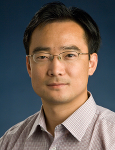
“Big Trajectory Data Processing on GPUs: Handle the Positional Streams”
Abstract: Recently there has been increasing development of positioning technologies in various Big Data applications, such as smart city computing. This enables us to collect trajectory streaming big data for moving objects. Efficient processing and analyzing of trajectory streaming big data have thus become an emerging and challenging task. The Graphics Processing Unit (GPU) is a promising platform for processing streaming data. This talk will highlight our GPU-aided approaches to improving the performance of continuous queries, compression, and clustering for streaming big trajectory data.
Biography: Dr. Lizhe Wang is a “ChuTian” Chair Professor at School of Computer Science, China Univ. of Geosciences (CUG), and a Professor at Inst. of Remote Sensing & Digital Earth, Chinese Academy of Sciences (CAS). Prof. Wang received B.E. & M.E from Tsinghua Univ. and Doctor of Eng. from Univ. Karlsruhe, Germany. Prof. Wang is a Fellow of IET, Fellow of British Computer Society. Prof. Wang serves as an Associate Editor of IEEE Trans. on Computers, IEEE Trans. on Cloud Computing, IEEE Trans. on Sustainable Computing. His main research interests include Cloud Computing, Big Data Computing, and remote sensing data processing.
Thursday, Dec. 15th, 2016 | 09:30 - 10:30
Dr. Reinhard Schneider, Luxembourg Centre for Systems Biomedicine (LCSB), University of Luxembourg
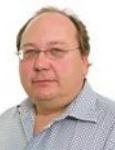
Cloud computing in the life sciences
Abstract: The life sciences became a data driven research area, with high demands in compute power and storage infrastructure. The talk will give an overview how cloud computing is used in the life sciences. We will discuss the current situation, current bottlenecks and limitations as well as data security and protection issues.
Biography: Dr. Reinhard Schneider is the Head of the Bioinformatics Core facility at the Luxembourg Centre for Systems Biomedicine (LCSB) at the University of Luxembourg. Between 1994-2010 he worked as a Team Leader at the European Molecular Biology Laboratory (EMBL) in Heidelberg, Germany, where he led the “Data Integration and Knowledge Management”. Before joining the EMBL he was co-founder of LION bioscience AG, Heidelberg where he served as Chief Information Officer being responsible for the worldwide software development. Before that, he was CEO of LION bioscience Research Inc., Cambridge, Massachusetts, establishing an IT based knowledge management system for Bayers gene based research and development efforts. Before founding LION bioscience, he worked as a scientist in the biocomputing department at the EMBL, Heidelberg, where he studied various aspects of protein structures. He co-developed a large-scale automated sequence analysis system which became the foundation of LION’s software offering and is an expert in the use of massive parallel computers in biology. Dr. Schneider received his Ph.D. in biology at the University of Heidelberg, Germany and has over 120 research papers published. He is a member of the board of Directors of the International Society for Computational Biology where he served 7 years as the treasurer. Beside his academic career, he is involved in several start-up projects in Germany and Luxembourg.
 Luxembourg
Luxembourg



